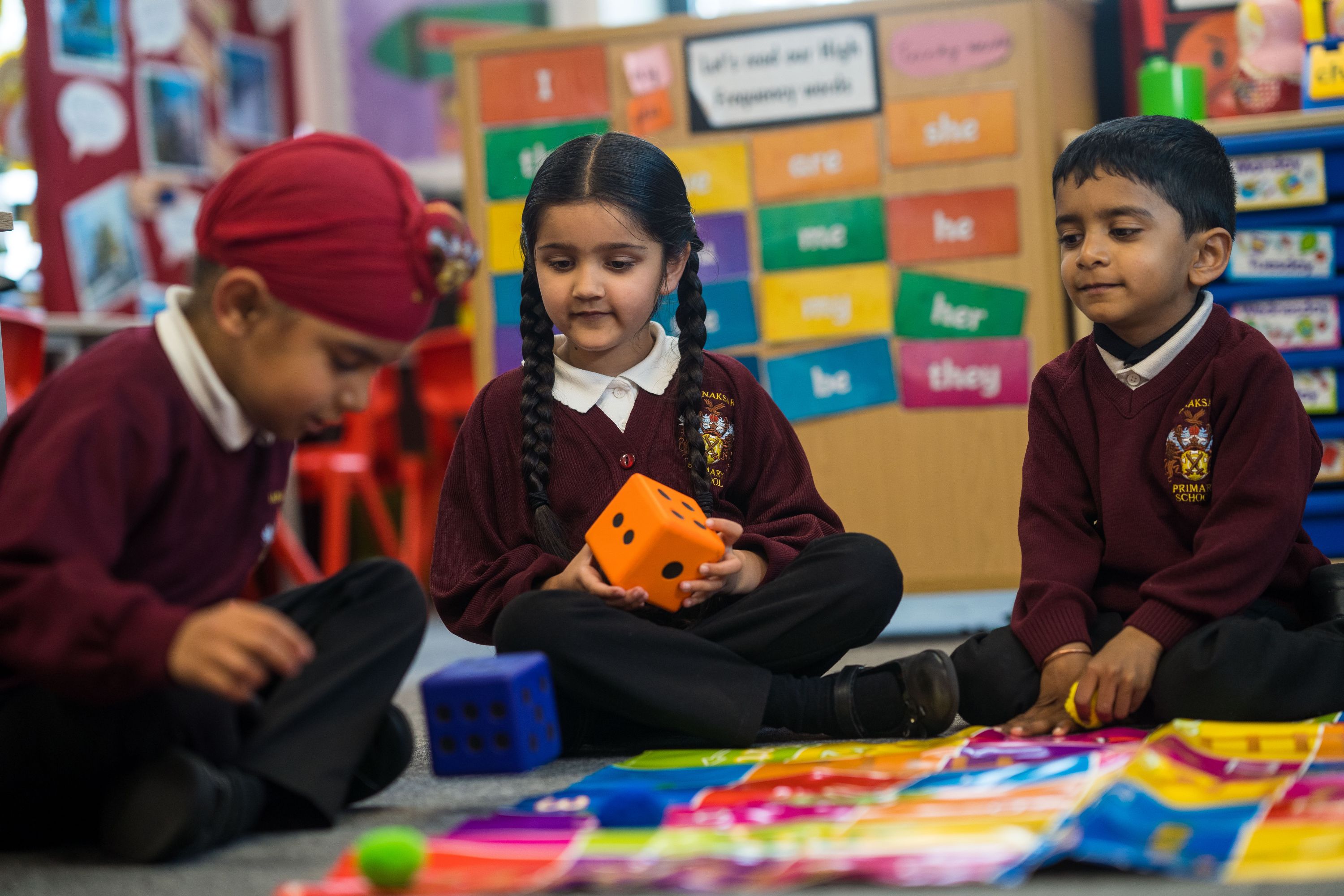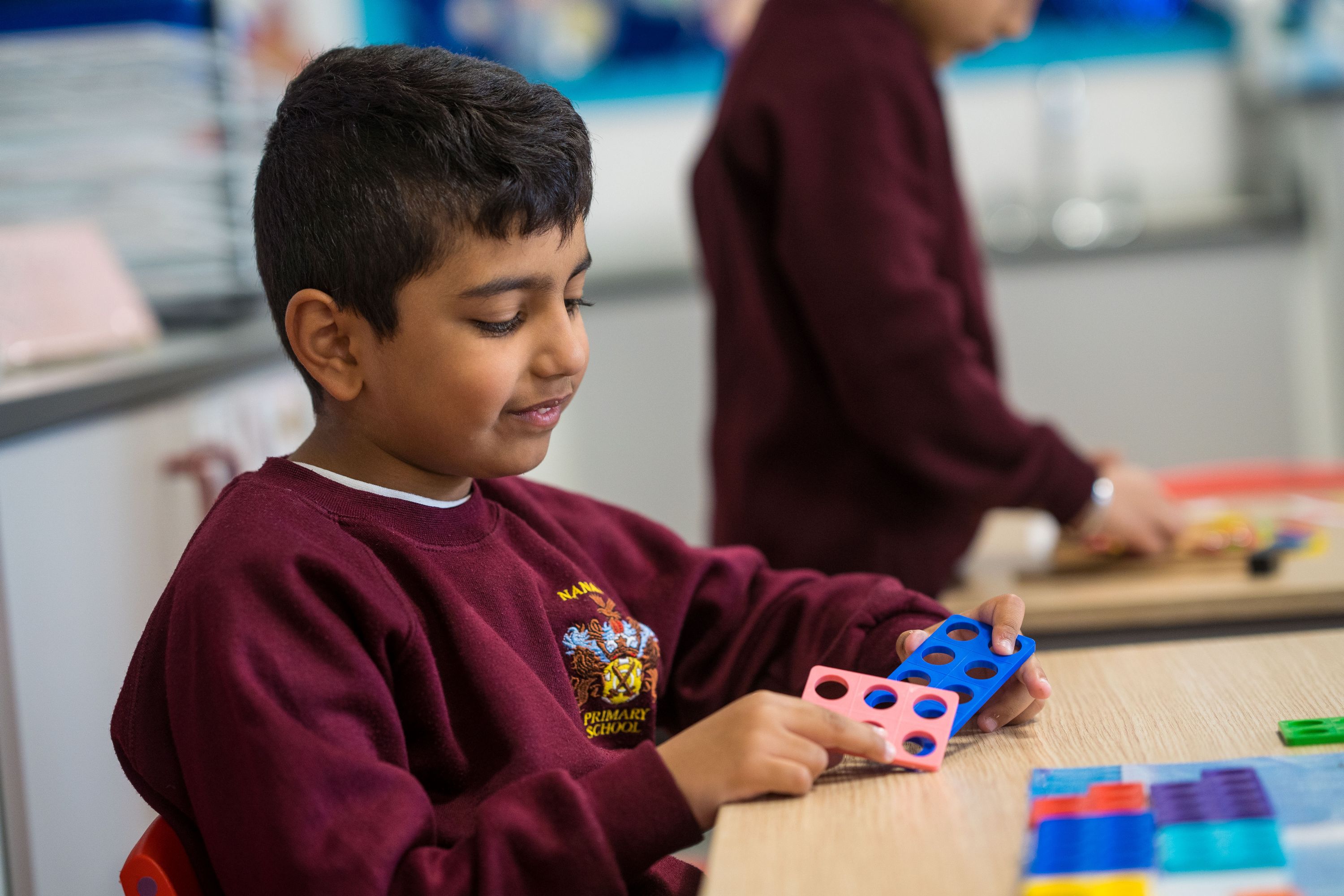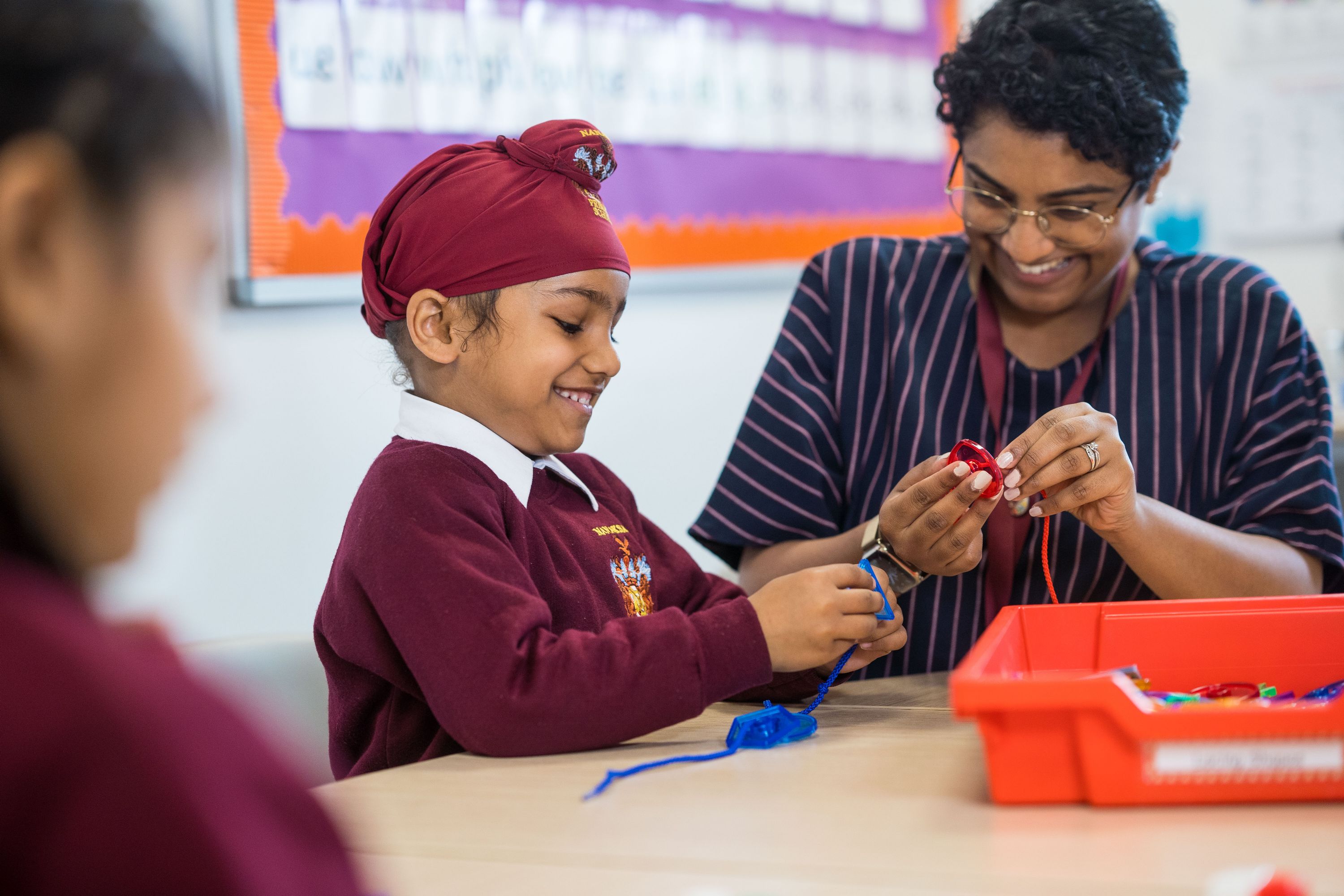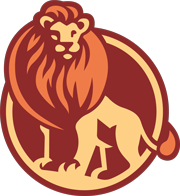Mathematics
We are in school to Acquire the knowledge and skills that will allow us to Achieve our aims and go on to what we Aspire to do.
Our aspiration for every learner (intent):
At Nanaksar Primary School our aim is to deliver a creative curriculum which inspires a passion for Mathematics and develops confident and resilient mathematicians. Through purposeful planning and practical learning experiences, all pupils develop the ability to deepen their understanding of applying fluency knowledge to solve reasoning problems for key concepts. We use a range of activities to develop pupils mental arithmetic skills which acts as a platform to allow them to independently leap into solving reasoning and problem solving.
We ensure that as pupils move through the programmes of study, they are given a wealth of opportunities to consolidate their understanding of fundamental topics. We plan creatively to enable pupils to practise, explore and challenge their learning and embed this in their long-term memory, with clear links to real life contexts.
All pupils, regardless of their language skills, special needs or ability, develop their confidence rapidly to grasp concepts and master their understanding. Our strong parent partnership allows opportunities for parents to understand the expectations and process of how their child is learning at school therefore promoting increased engagement in Mathematics both at school and home.
How we support pupils to acquire this learning (implementation):
It is our purpose in teaching Mathematics, to:
- Provide a curriculum that builds on prior knowledge and consolidates previous work, in order to improve long term recall of key information and processes
- Enable pupils to make rich connections across mathematical ideas to develop fluency, mathematical reasoning and competence in solving increasingly sophisticated problems
- Develop pupils’ ability to solve problems in a variety of contexts, building their confidence to tackle unfamiliar problems in new situations
- Develop a wide range of mathematical vocabulary in all aspects of maths teaching and develop the ability to reason and make sense of problems, explain their thinking process leading to the solution
- Make pupils aware of the use of mathematics in everyday life and to build awareness and skills related to matters that will be important to them as they develop into young adults
- Develop financial literacy, become critical scientists and confident with technology, and to use these skills to become active citizens who make positive contributions to society.
Due to the growing number of in year admissions of pupils coming from abroad, we carry out baseline assessments and personalise teaching and learning to meet the needs of these pupils (as required) to ensure that any gaps in learning is filled before exposing pupils to new learning.
Early Years Foundation Stage
In the EYFS, pupils learn through planned learning experiences mostly based on an integrated thematic approach but is also taught discretely where this might be more suitable. Emphasis is on learning through play, direct practical experience through a combination of adult-led, teacher taught sessions of discovery, exploration, curiosity and challenge. We prioritise creating a ‘language rich’ environment through the use of songs, nursery rhymes, stories and providing time for quality interactions between adults and peers top enable them to acquire new mathematical knowledge and use it in in a variety of contexts.
Key Stage 1
The principal focus in KS1 is to ensure that pupils develop confidence and mental fluency with whole numbers, counting and place value. At this stage, pupils develop their ability to recognise, describe, draw, compare and sort different shapes and use the related vocabulary. Teaching involves using a range of practical and concrete measures to describe and compare different quantities such as length, mass, capacity/volume, time and money.
Key Stage 2
At KS2 pupils extend their understanding of the number system and place value to include larger integers. This develops the connections that pupils make between multiplication and division with fractions, decimals, percentages and ratio. Pupils are taught to develop their ability to solve a wider range of problems, including increasingly complex properties of numbers and arithmetic, and problems demanding efficient written and mental methods of calculation. By the end of Year 4, all pupils are expected to recall their multiplication facts to 12x12 in preparation for the Multiplication Tables Check. By the end of year 6, pupils are fluent in written methods for all four operations, including long multiplication and division, and in working with fractions, decimals and percentages.



Our Mathematics curriculum is shaped by our school vision of all pupils to acquire, achieve and aspire whilst having a love of Maths and a firm understanding of its place in the world.
- Our planning is adapted to create a bespoke curriculum designed to meet the needs of our pupils and to allow for opportunities for revisit and retention, ensuring full coverage of the national curriculum for Mathematics.
- Differentiation is an expectation within every lesson in which pupils are asked to reason and prove their understanding at their expected level, both independently and/or collaboratively therefore developing perseverance and resilience to complex problems.
- Key Stage 1 and 2 teachers implement the schools agreed calculation policies for progression in written and mental calculations.
- A clear learning objective and success criteria is shared with all pupils so that they understand the steps involved in becoming successful in their learning and what they can do to challenge themselves.
- Opportunities for peer and self-assessment are provided weekly so that pupils are given instant feedback in their learning.
- Misconceptions are addressed and used as a discussion point to enable pupils to explain their thinking and clarify their understanding.
- Quality first teaching is provided throughout the school along with effective teacher modelling along with effective assessment for learning to make sure pupils are moved on in their learning or supported when finding it difficult.
- Previously learnt mathematical vocabulary is revisited and new vocabulary is shared with pupils each lesson to support all pupils, especially those with English as an additional language.
How we measure achievements (impact):
Pupils enjoy Mathematics and hold a positive view of the subject in which they can share their understanding and discuss strategies with confidence.
A combination of formative and summative assessments are planned for over the academic year to ensure pupils are acquiring the expected knowledge, can retain their prior learning and are able to apply their knowledge by demonstrating their understanding in a variety of contexts, making necessary connections between their learning.
> Formative assessment is an integral part of our approach to the teaching and learning of Mathematics and through the consistent, high quality marking and feedback, pupils are able to make rapid progress and close any gaps in their learning.
> Summative assessments involve half termly Rising Stars arithmetic tests, WhiteRose assessment questions and Progress in Maths Assessments (PUMA) to enable teachers to assess learning, reliably benchmark performance and track progress against national averages.
Our books evidence work of a high standard of which pupils clearly take pride; the components of the teaching sequences demonstrate good coverage of fluency, reasoning and problem solving. Our feedback and interventions support pupils to strive to be the best mathematicians they can be, ensuring a high proportion of pupils are achieving above national average outcomes at the end of each phase.

